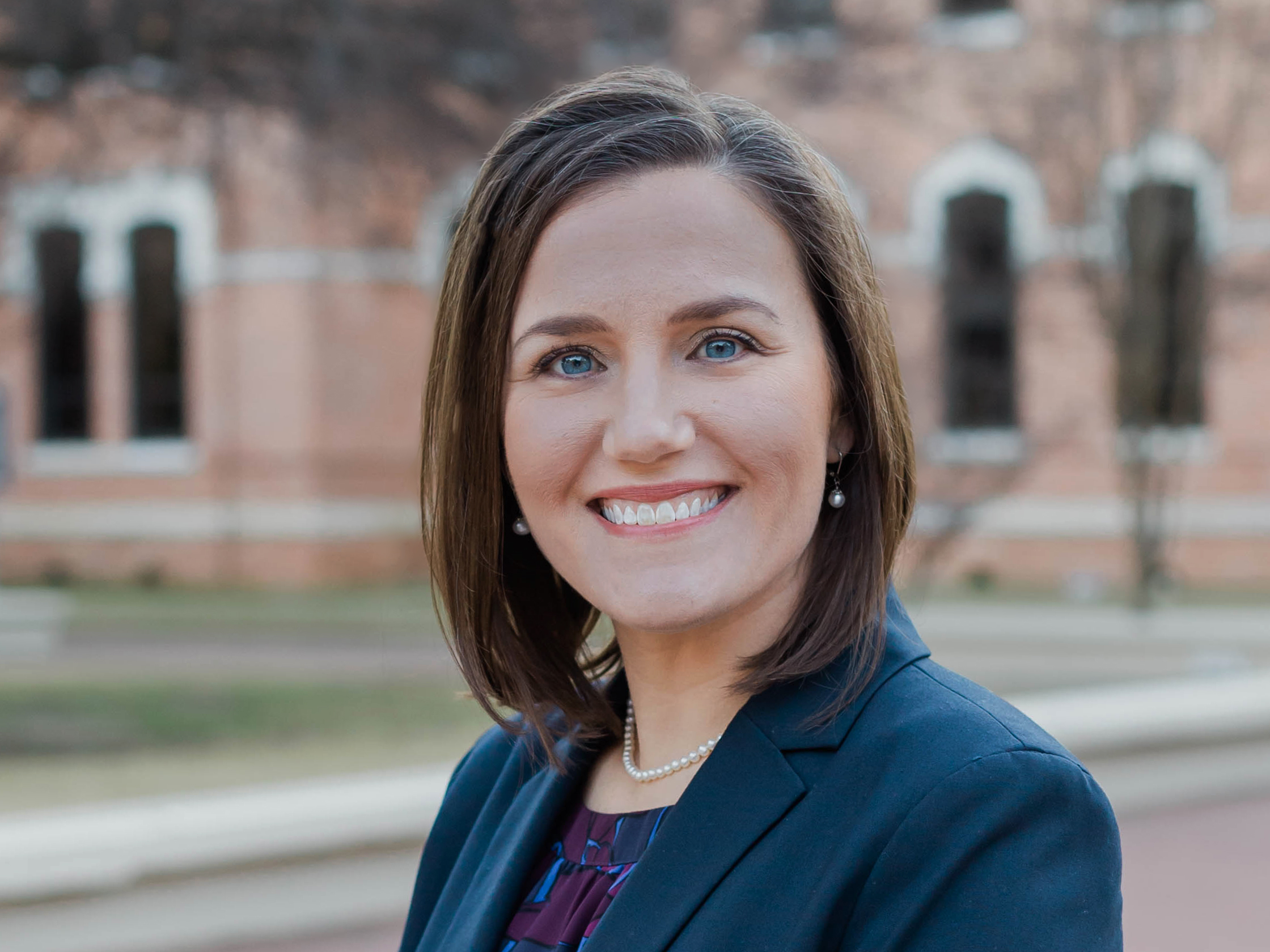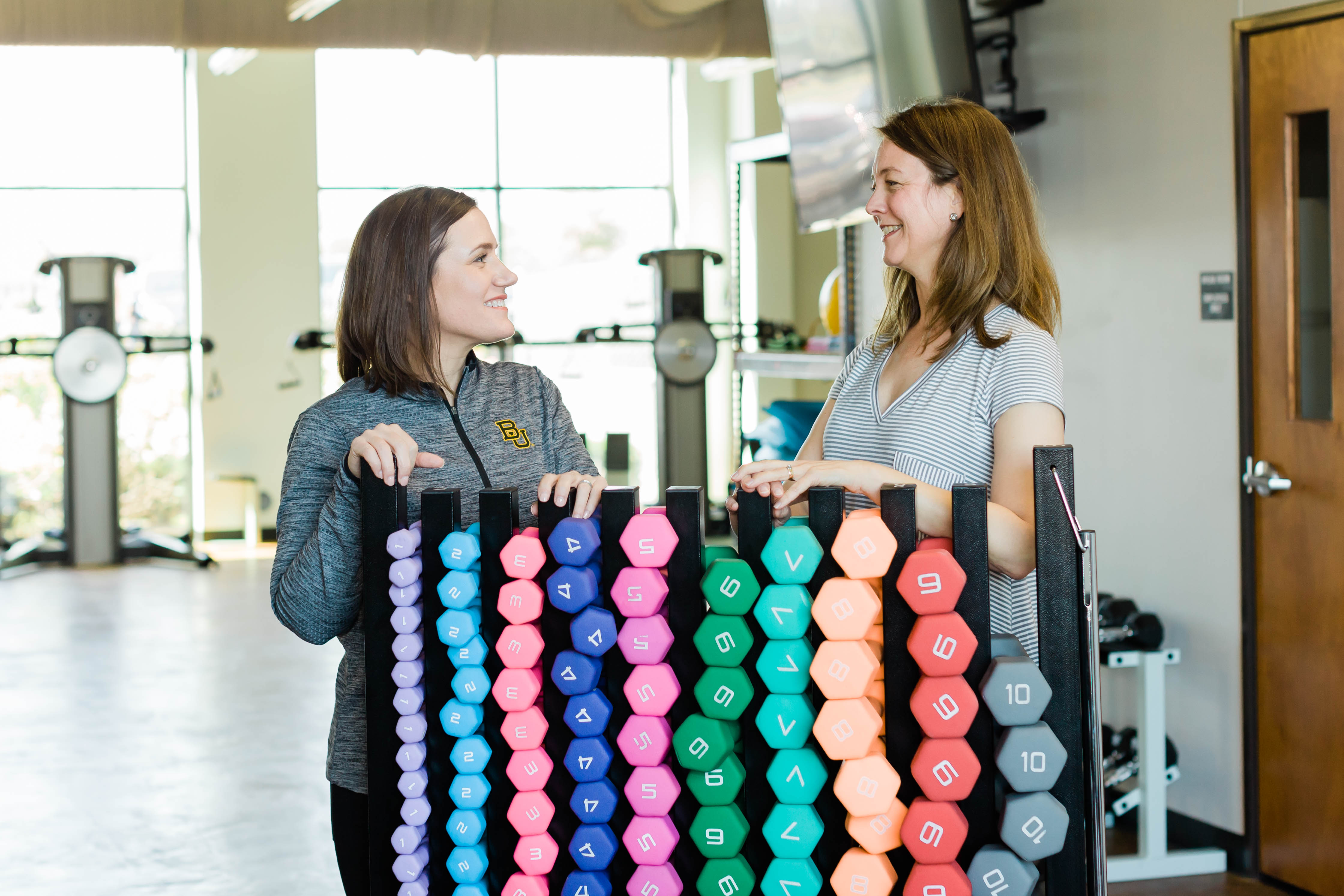Rising Star faculty member earns $626,000 career development award from NIH


Baylor epidemiologist Dr. Kelly Ylitalo earned an NIH K01 career development award in support of her research.
Contact: Whitney Richter, Director of Marketing and Communications, Office of the Vice Provost for Research, 254-710-7539
Written by: Blake Thomas, Office of the Vice Provost for Research
WACO, Texas (Jan. 30, 2019) – Kelly Ylitalo, Ph.D. assistant professor in the department of public health in Baylor's Robbins College of Health and Human Sciences, has been awarded a prestigious career development grant from the National Institutes of Health (NIH) to study the link between physical activity and healthy aging. The grant, valuing more than $626,000, will span a five-year project period.
The Mentored Research Scientist Award (K01) from the National Institute on Aging, one of twenty institutes within the NIH, is intended to help promising, early-career researchers build on their existing expertise through mentored training in a new methodology or area of study. The grant will allow Ylitalo to partner with local healthcare organizations to develop and test new methods for capturing and interpreting data about physical activity.
Ylitalo began studying the links between physical functioning and healthy aging while pursuing her Ph.D. at the University of Michigan, where she worked on the Study of Women's Health Across the Nation (SWAN) – a 20-year, longitudinal study that tracks changes in health over time. The study seeks to identify physical functioning limitations earlier in life – things like decreases in walking speed – that correlate with disability and disease later in life.
While statistical analysis of data like the SWAN study remains an important part of her work, Ylitalo says her goal is to develop broader strategies that help people develop healthy habits.
"One of the unique things about being at Baylor is I've been able to look more broadly at aging and not just focus on physical functioning and disability," she said. "I want to ask questions about what we can do across the life course to help people age well, and this grant will allow me to have dedicated time as a junior faculty member to do that."

Ylitalo, left, with Wendy Cox, the community-centered health home manager at the Family Health Center
Part of that broad approach to healthy aging involves community-based, participatory research methods that create a dialogue between researchers and community members to identify socially and culturally appropriate interventions. Ylitalo is partnering with the Waco Family Health Center, as well as with the Center's network of 15 satellite healthcare clinics throughout McLennan County that provide care to vulnerable populations in the McLennan County area. She plans to develop her first pilot interventions in consultation with a cohort of 60 women who are patients of the clinics.
"It's important that this isn't just a researcher telling people, 'This is what you need to do to be healthy,'" Ylitalo explained. "It's about talking with people, learning about barriers to healthy activity and then, together with the participants, facilitating measurements and solutions. The Family Health Center is an asset in our community and it is a privilege to work with them as a Baylor faculty member."
Renée Umstattd Meyer, Ph.D., an associate professor of public health in Robbins College, serves as one of Ylitalo's mentors on the grant. She is pleased that Ylitalo will have the opportunity to further expand her skill set in a way that benefits the community.
"Kelly came to Baylor with amazing epidemiology skills in assessment and analysis," Umstattd Meyer said. "This grant will give her the chance to build on that experience by developing more of the theoretical and social-behavioral skills found in the field of public health. Epidemiologists like Kelly are already trained to find connections in large data sets; this will give her the skill to apply that knowledge in a way that makes a difference to improve quality of life."
Rodney Bowden, Ph.D., the dean of Robbins College, sees Ylitalo's award as an important validation of her contributions to public health research at Baylor and the university's strategic mission.
"We know in Robbins College the importance and quality of Dr. Ylitalo's work," Bowden said. "Yet, to see such a strong confirmation of the soundness of her science, methodology, and innovative ideas from peers at NIH is rewarding. As Robbins College seeks to advance Illuminate [Baylor's academic strategic plan] in various ways including continuing to increase research expenditures through external funding, Kelly's landing of such a prestigious award is a significant step."
Echoing Bowden's comments, Kevin Chambliss, Ph.D., Baylor's interim vice provost for research, says that career development grants like the NIH K01 help to lay the foundation for further growth in research at Baylor.
"The K award is a great mechanism to help newer faculty establish themselves as independent researchers," said Chambliss. "Grants like this one are important building blocks toward Baylor's ultimate goal of reaching R1 status as one of the top research institutions in the country."
Perhaps the most exciting thing about receiving the grant, Ylitalo said, is the opportunity it presents to leverage the resources and expertise of Baylor and community organizations for the benefit of people throughout the region.
"For Baylor, this grant provides an opportunity for us to connect with the central Texas community and work alongside vulnerable populations to find shared solutions to increase physical activity and improve health throughout the life course," said Ylitalo "I hope that this grant will open the doors for more funding to support good work that can be accomplished through academic-community partnership."